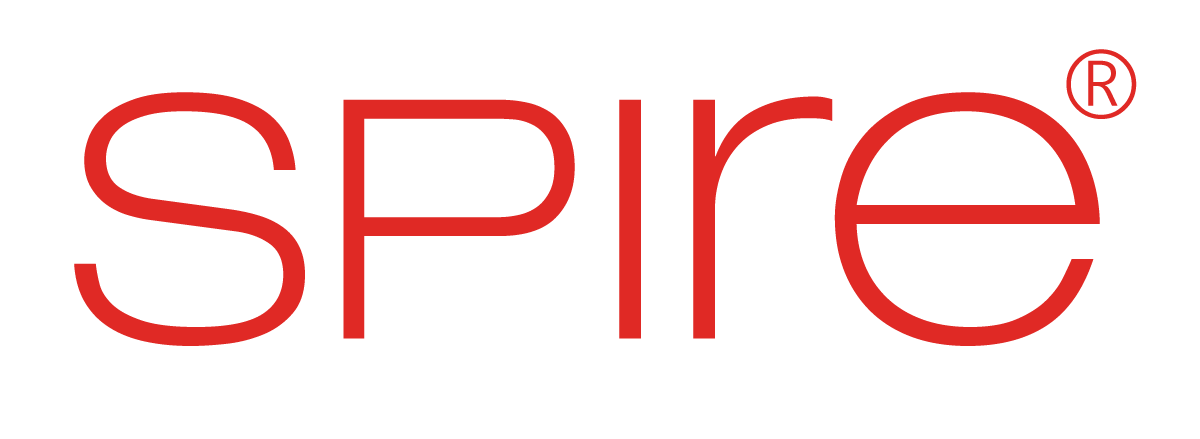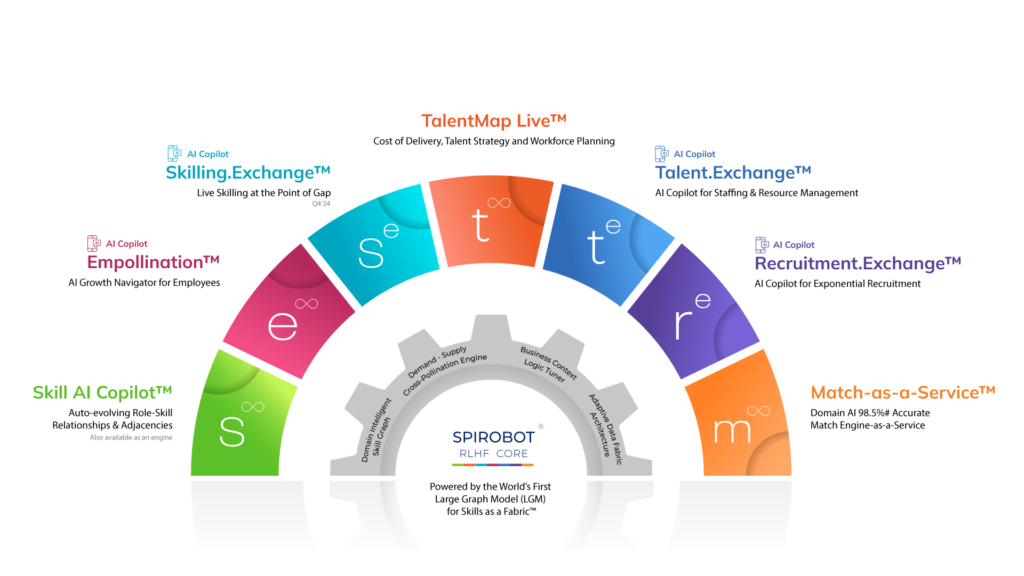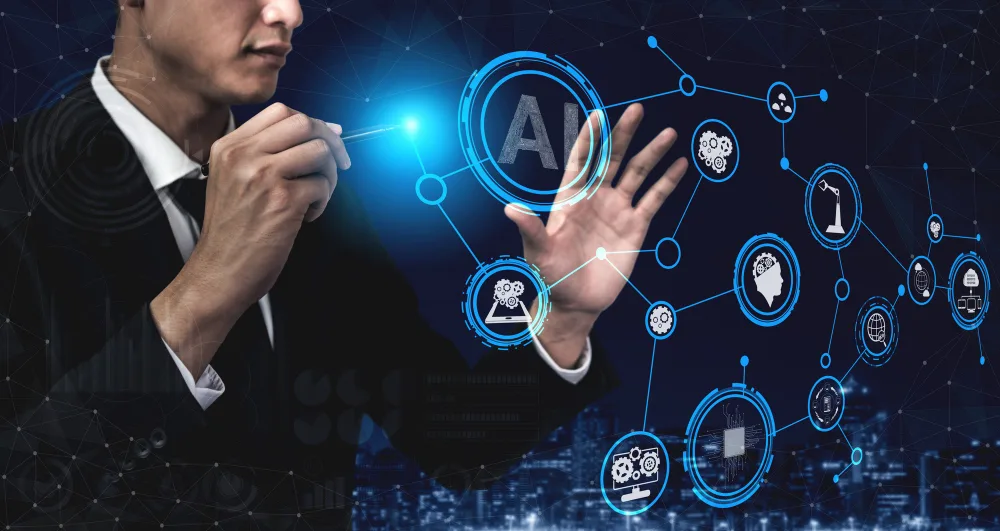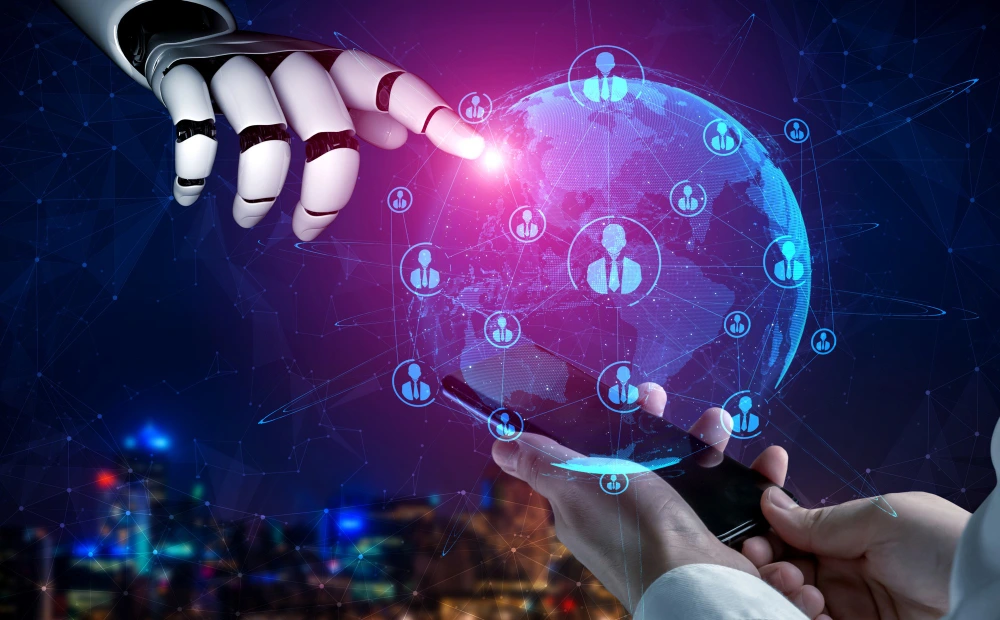The employee lifecycle, from recruitment to retention, is becoming increasingly complex, and traditional HR systems struggle to keep up. Static frameworks and one-size-fits-all processes no longer meet the dynamic demands of modern organizations. This gap has given rise to customizable HR software, a new breed of talent management solutions that allow organizations to personalize every stage of workforce management.
With the integration of technologies like Large Graph Models (LGM) for Skills, customizable HR software offers auto-evolving role-skill frameworks and contextual adaptability, setting a new benchmark for talent operations. This blog explores how these advanced systems transform skill-based hiring, internal mobility, workforce planning, and retention strategies, enabling businesses to align talent management with organizational goals.
What is Customizable HR Software?
Customizable HR software refers to platforms that adapt to organizations’ unique needs. Unlike traditional HR systems that operate on rigid frameworks and predefined workflows, customizable solutions offer flexibility, configurability, and dynamic updates.
Why Organizations Need Custom HR Software
- To enable dynamic internal mobility and succession planning.
- To personalize employee development and increase productivity.
- To create a seamless, unified approach to talent operations.
- To address specialized skill shortages with precision hiring.
How They Differ from Traditional HR Software
- Static vs. Auto-Evolving Frameworks:
Traditional HR software relies on static skill and role definitions, often requiring frequent manual updates. In contrast, customizable HR solutions provide role-skill frameworks that adapt to changing business demands and automatically evolve job roles. - Generic vs. Personalized Processes:
Traditional systems offer limited personalization, applying the same workflows across all departments or regions. Customizable HR software allows businesses to configure workflows, learning paths, and role definitions based on specific geographies, business units, or employee needs. - Limited vs. Real-Time Adaptability:
Traditional systems cannot adapt to market changes or internal requirements in real time. Customizable solutions leverage Domain-Intelligent AI and data-driven insights to provide real-time skill inventories, workforce planning and targeted learning recommendations. - Fragmented vs. Unified Talent Operations:
Many traditional systems operate in silos, creating gaps in visibility and decision-making. Customizable HR software integrates recruitment, learning, internal mobility, and retention into a unified platform for better alignment and efficiency.
The Power of Auto-Evolving Role-Skill Frameworks and Dynamic Skills Inventory
Customizable HR software brings unparalleled agility to talent management by integrating auto-evolving role-skill frameworks and maintaining a dynamic skills inventory. These features eliminate the inefficiencies of static frameworks and empower organizations to stay ahead in a rapidly evolving talent landscape.
How Auto-Evolving Role-Skill Frameworks Enhance Talent Management
Customizable HR software, when powered by LGM for Skills, introduces a transformative approach to managing roles and skills within the organization:
- Dynamic Role Updates:
Traditional HR systems require manual updates to role definitions, which can lead to outdated and irrelevant job descriptions. With customizable HR software, auto-evolving role-skill frameworks automatically update based on evolving business needs, emerging skills, and market trends. For instance, if a new technology like generative AI gains prominence, the system adjusts relevant roles to reflect these skills without manual intervention. - Custom Role Configurations:
Businesses can configure role frameworks specific to departments, geographies, or industries. This ensures that talent operations reflect the unique nuances of different organizational units while maintaining a unified system. - Real-Time Skill Mapping:
The solution dynamically links roles with the most relevant skills, ensuring every role has a clear, accurate, and up-to-date skill map. This mapping enables managers to make informed decisions about hiring, upskilling, or redeploying talent.
The Role of Dynamic Skills Inventory in Custom HR Software
A dynamic skills inventory is the foundation of effective talent operations, and customizable HR software ensures it is continuously updated and accessible. Here’s how it works:
- Real-Time Employee Skill Profiles:
Custom HR software aggregates employee data across various touchpoints—performance reviews, training completions, certifications, and more—to build live skill profiles. These profiles evolve in real-time, reflecting changes in an employee’s capabilities and achievements. - Customizable Skill Dashboards:
Unlike static systems with limited visibility, customizable HR software offers configurable dashboards for skill insights. HR leaders can view skill distribution across teams, identify gaps, and align these insights with organizational objectives. - Proactive Workforce Planning:
HR teams can plan for current and future needs by maintaining a live snapshot of organizational skills. This capability is particularly critical for industries undergoing rapid transformation, such as technology, healthcare, and manufacturing.
Personalized Learning Paths with Custom HR Software
The success of a modern workforce lies in continuous learning and reskilling. Customizable HR software provides personalized learning paths that address individual aspirations and organizational goals.
Key Features of Personalized Talent Management Software
- Skill Gap Identification:
Using LGM for Skills, the software identifies gaps in employees’ skill sets and recommends specific certifications, tutorials, and mentorship programs. - Skilling at the Point of Need:
Employees receive learning suggestions tailored to their immediate challenges, ensuring faster upskilling and higher engagement. - Dynamic Learning Frameworks:
Unlike traditional systems that offer static training programs, customizable HR software updates learning recommendations in real time based on emerging trends and skill demands.
Internal Mobility and Strategic Workforce Planning
Internal mobility is crucial for cost-effective talent management and employee satisfaction. Customizable HR software enables organizations to seamlessly redeploy talent across roles and departments while planning for future workforce needs.
How It Works
- Role-Skill Frameworks:
Auto-evolving frameworks dynamically align employee skills with available roles, making internal opportunities visible to employees and managers. - Predictive Workforce Planning:
The software forecasts talent needs based on business objectives, ensuring that skills are aligned with future demands. - Cross-Functional Mobility:
Employees can transition into roles outside their current domain, supported by training and upskilling recommendations.
Skill-Based Hiring with Customizable HR Software
Recruitment is the foundation of a successful talent strategy. Customizable HR software leverages LGM for Skills to enable skill-first hiring, ensuring suitable candidates are matched to the right roles.
How Customizable HR Software Enhances Hiring
- Dynamic Skill Matching:
The LGM for Skills identifies adjacent and complementary skills, broadening the talent pool and ensuring high-quality hires. - Evolving Role Requirements:
Auto-evolving role-skill frameworks dynamically update job descriptions and skill requirements to reflect market trends and organizational changes. - Reduced Hiring Time:
Domain AI-driven automation streamlines the recruitment process, from resume parsing to candidate ranking, reducing hiring timelines.
Spire.AI: Enabling Organizations with Customizable HR Software Powered by Large Graph Model for Skills
Spire.AI has redefined how organizations approach talent operations by providing customizable HR software with advanced technologies like Large Graph Models (LGM) for Skills and Domain-Intelligent AI. Designed to tackle the complexities of modern workforce operations, the Spire.AI platform empowers organizations to move beyond static, one-size-fits-all solutions and embrace flexible, auto-evolving frameworks that align talent strategies with business objectives.
Here’s how Spire.AI enables organizations to unlock the full potential of their HR systems:
1. Dynamic Role-Skill Frameworks for Evolving Needs
Spire.AI introduces auto-evolving role-skill frameworks that adapt to the dynamic nature of skills, roles, and market trends. Unlike traditional systems that rely on manual updates, Spire.AI Domain-Intelligent AI technology ensures that role definitions and skill requirements remain relevant and future-focused.
- Real-Time Updates: The platform continuously integrates data from industry trends, job market analyses, and internal workforce metrics to automatically refine role definitions and required skills.
- Custom Role Configurations: Organizations can configure role frameworks for specific geographies, industries, or departments while ensuring alignment across global teams.
- Future-Readiness: With a framework that evolves automatically, businesses can avoid skill disruptions caused by technological advancements, regulatory changes, or market shifts.
2. Business Context Logic for Customizable HR Workflows
The Spire.AI platform incorporates Business Context Logic (BCL) to enable highly configurable workflows that reflect the unique operational needs of different business units or geographies. This feature allows organizations to implement multiple operating models simultaneously without creating silos.
- Simultaneous Configurations: HR teams can create workflows that cater to diverse regional or business requirements while maintaining centralized visibility.
- Unified Platform: Despite the customized configurations, the platform ensures seamless integration across geographies and verticals, providing a single source of truth for HR operations.
- Geo-Specific Intelligence: Whether adhering to regional compliance requirements or addressing local talent dynamics, the Spire.AI platform adapts to meet unique needs without disrupting organizational consistency.
3. Dynamic Skills Inventory for Workforce Insights
The heart of Spire.AI’s customizable HR software lies in its dynamic skills inventory, powered by LGM for Skills. This feature gives organizations real-time visibility into their workforce capabilities, enabling informed decision-making and proactive talent strategies.
- Real-Time Skill Profiles: Automatically aggregate employee data from various sources, including performance reviews, certifications, and learning records, to create live, evolving skill profiles.
- Skill Demand Matching: The platform identifies organizational skill gaps and matches them with internal talent or targeted reskilling programs.
- Actionable Insights: Configurable dashboards provide granular insights into skill distributions, gaps, and strengths across teams and departments.
4. Enabling Internal Mobility Through Precision Matching
The Spire.AI platform fosters a culture of internal mobility, helping organizations maximize the potential of their existing workforce. Using advanced Domain AI-driven multi-algorithm matching, employees can transition into new roles seamlessly based on their skills, career aspirations, and the organization’s needs.
- Cross-Functional deployments: Identify opportunities for employees to move across teams or departments, supported by targeted learning paths to address skill gaps.
- Leadership Pipelines: Proactively identify high-potential employees and prepare them for future leadership roles through skill development and personalized career paths.
- Employee-Centric Experience: Empower employees to visualize their career trajectories within the organization, enhancing engagement and retention.
5. Data-Driven Workforce Planning for Strategic Decisions
Workforce planning often suffers from fragmented data and incomplete visibility. Spire.AI addresses this challenge with a data-driven approach integrating real-time insights, predictive modeling, and scenario planning.
- Predictive Analytics: Use AI to forecast talent needs based on business growth plans, market trends, and project pipelines.
- Scenario Planning: Simulate various workforce scenarios, such as rapid growth or cost-cutting measures, and identify the best strategies to maintain agility.
- Talent Control Room: A centralized dashboard powered by Domain-Intelligent AI provides leaders with a comprehensive view of talent operations, enabling faster, more strategic decisions.
6. Reskilling and Upskilling at the Point of Need
Spire.AI’s platform ensures that organizations can address skill gaps as they emerge, with targeted reskilling and upskilling recommendations that align with individual and organizational goals.
- Personalized Learning Recommendations: Suggest certifications, training programs, or mentorship opportunities tailored to employees’ current roles and future aspirations.
- Immediate Actionability: Enable employees to address skill gaps through on-demand learning at the point of need, fostering faster development.
- Enhanced Retention: Employees are likelier to stay with organizations that invest in their growth and provide clear career pathways.
Conclusion: Empowering the Future of Talent Management with Customizable HR Software
The workforce landscape is evolving faster than ever, demanding HR systems that are not just reactive but proactive. By integrating technologies like auto-evolving role-skill frameworks, dynamic skills inventories, and business context logic, customizable HR software gives organizations the flexibility to adapt, the intelligence to strategize, and the tools to thrive.
Spire.AI is at the forefront of this transformation, empowering HR software providers to deliver unparalleled precision and adaptability. Whether it’s streamlining recruitment through skill-first hiring, enabling seamless internal mobility, or driving personalized employee development, Spire.AI equips organizations with the capability to stay ahead of the curve.
The days of static, fragmented talent operations are over. Customizable HR software, powered by advanced frameworks, doesn’t just manage talent—it transforms it into a strategic asset. Organizations that embrace this new paradigm will not only navigate today’s complexities but also future-proof their workforce, unlocking sustained success in an ever-changing world.
The future of talent operations isn’t static—it’s dynamic, intelligent, and customizable. And it’s here today with Spire.AI.






